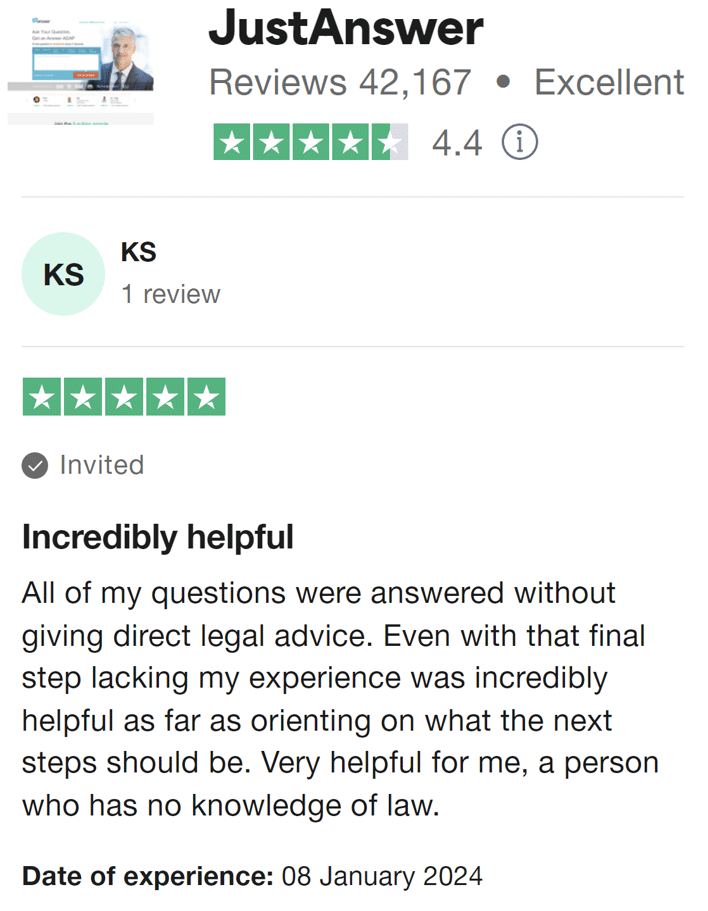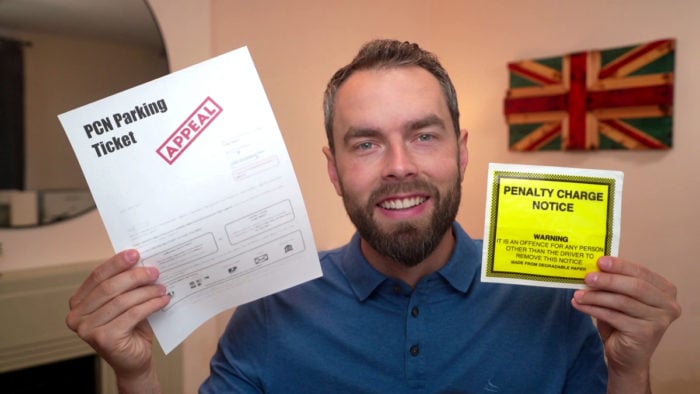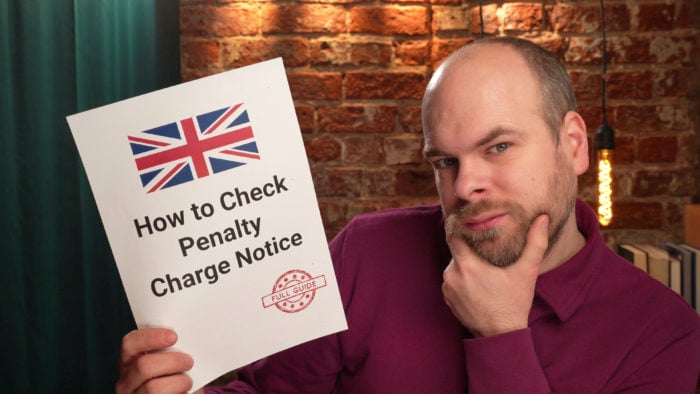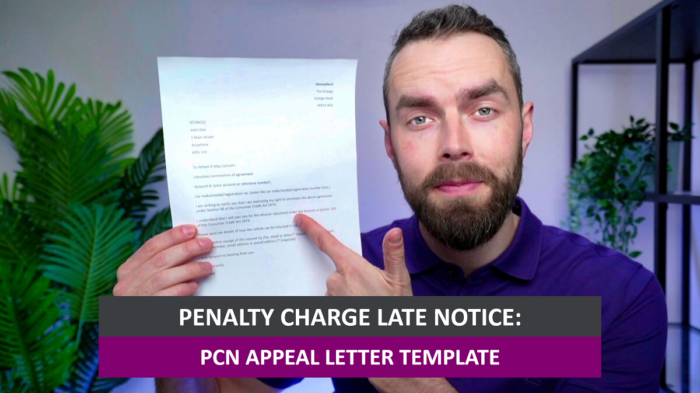Have you received a Penalty Charge Notice and are feeling a bit lost about what to do next? Don’t worry; you’ve come to the right place for help. Every month, over 130,000 people turn to us for guidance on fines and parking tickets.
In this article, we’ll talk about:
- What a Penalty Charge Notice (PCN) is
- If you must pay a PCN
- How to appeal against a PCN
- What you could get a PCN for
- What might happen if you don’t pay the PCN
Getting a Penalty Charge Notice can be a big worry. But don’t let it get you down. We’re here to help with easy-to-understand information and tips. We know what you’re going through and we’re here to make it as easy as possible for you. From understanding what PCN is, to how to appeal against one, we’ve got it all covered for you.
Let’s dive in.
Most Appeals Succeed
In some circumstances, you might have a legitimate reason not to pay your fine.
It’s a bit sneaky, but the last time I needed legal advice, I paid £5 for a trial to chat with an online solicitor called JustAnswer.
Not only did I save £50 on solicitor feeds, I also won my case and didn’t have to pay my £271 fine.
Chat below to get started with JustAnswer
*Around 35,000 people dispute their tickets each year with the Traffic Penalty Tribunal, and a striking 64% of those appeals are successful, so it’s well worth a try.
What is a Penalty Charge Notice (PCN)?
A Penalty Charge Notice (PCN) is a type of fine from a local council or Transport for London (TfL). They are issued to motorists for different reasons, such as parking contraventions on public land or for using a bus lane when not permitted.
A Penalty Charge Notice might be left on your vehicle when it is parked. Otherwise, it can be sent to the registered vehicle keeper in the post. The council or TfL do this by contacting the Driver and Vehicle Licensing Agency (DVLA) and requesting the address of the owner of the vehicle.
Interestingly, it’s the registered vehicle keeper who is obligated to pay the fine, even if the car is shared and someone else was guilty of the contravention which caused the PCN.
Do You Have to Pay?
In many circumstances, you could appeal your PCN.
It’s a bit sneaky, but last time I had a PCN I paid £5 for a trial to chat with an online solicitor called JustAnswer.
Not only did I save £50 on solicitor fees, I also won my case and didn’t have to pay my £271 fine.
Click here to get the trial offer with JustAnswer.
Is a Penalty Charge Notice a criminal offence?
Penalty Charge Notices are issued for minor driving offences and don’t typically result in a criminal conviction.
A Fixed Penalty Notice (FPN) from the police also won’t result in a criminal record unless the matter escalates to court and a judge convicts you. But this is rare.
What can you get a Penalty Charge Notice for?
Penalty Charge Notices are issued for:
- Parking contraventions on public land, such as not paying when you’re supposed to in a council car park or parking on double yellow lines.
- Driving or stopping in a bus lane at times of the day when you cannot use the bus lane
- Numerous other minor driving offences, such as turning in a direction at a junction which isn’t allowed, or driving a vehicle that isn’t allowed on the roads.
- Congestion offences, which are explained below.
What’s a congestion PCN?
A Congestion Penalty Charge Notice (PCN) is a fine from a council or Transport for London for entering a congestion zone (or equivalent) and not paying the entry fee by the set deadline.
For example, if you drove in London’s Low Emissions Zone (LEZ) with a non-exempt vehicle, you must pay the LEZ charge by midnight on the third day after you entered the zone. If the payment is not made by the deadline, the vehicle keeper will receive a Penalty Charge Notice. Or, if you have paid the fee and believe the PCN has been issued by mistake, you can use this congestion charge appeal template to help you appeal your case.
Who can issue a Penalty Charge Notice?
A Penalty Charge Notice can be issued by any local council for an alleged contravention within their council area, or they can be issued by Transport for London.
Transport for London issues PCNs for contraventions that take place on London’s red routes, which are some of the most used London roads and make up around 5% of all London roads.
Your local council might employ staff to issue Penalty Charge Notices in person within council areas. They do this by handing you the PCN or by leaving the PCN on your vehicle. These workers are called Civil Enforcement Officers (CEOs).
How much are Penalty Charge Notices in the UK?
The fine you have to pay when you receive a Penalty Charge Notice varies based on the type and location of the alleged contravention. These fines can range from an initial £50 to £160, but all fines come with a 50% discount if you pay within the first 14 days.
For example, you could be charged £60 or £90 for different types of parking contraventions within the same council area. But the same parking contravention in London could cost you up to £160. Similarly, bus lane PCNs outside of London are usually £70, whereas on London red routes they are £160.
These examples don’t include the offer of a 50% reduced penalty for paying quickly.
Penalty Charge Notices from your local council!
If you want to know more about Penalty Charge Notices from a particular municipality, why not check out our location-specific posts below?
Are Penalty Charge Notices legally enforceable?
Yes, Penalty Charge Notice fines can be legally enforced by a court if you don’t pay.
Councils and Transport for London can register the fine as a debt with the County Court and you’ll be made to pay. But this isn’t the first course of action if you don’t pay.
How to pay a Penalty Charge Notice
You are given multiple methods to pay a Penalty Charge Notice.
You can send a cheque in the post, but the most common methods are to pay over the phone by calling a dedicated 24/7 automated payment line or by paying online using the council’s or TfL’s website. Some councils even allow you to visit local landmarks to pay in cash, such as a council library.
Whichever way you choose to pay, you’ll need to quote your car registration number and your Penalty Charge Notice number. This is so the issuer can identify which PCN you’re paying.
What is a Penalty Charge Notice number?
A Penalty Charge Notice number is a unique identifier of your PCN. The number will be written somewhere on your PCN. Many issuers position it at the top of the notice on the left side.
Losing your PCN number will prevent you from paying. If this has happened to you, read our Lost PCN Number Guide for help!
Can I appeal a PCN?
Yes, you can appeal a Penalty Charge Notice.
You’re allowed to make an informal PCN appeal within the first 14 days – or sometimes the first 28 days – after receiving the PCN. If you make the informal appeal while you’re still eligible for the 50% discount, this discount may still be on offer for a limited time if the informal PCN appeal is rejected.
And you can make a formal PCN appeal called a “representation” between 29 days and 56 days after the PCN was issued. The representation can only be made after the vehicle keeper receives a Notice to Owner, which is a separate letter sent after the first 28 days.
If your PCN doesn’t arrive within 28 days, that doesn’t necessarily mean you’ll be exempt from paying it, so don’t ignore it.
The Notice to Owner gives the vehicle keeper a 28-day deadline to lodge their formal appeal or to make a payment. If no action is taken, you lose your right to appeal if you don’t have a good excuse for why you didn’t appeal in time.
This time limit is often the case when it comes to penalty charge notices. For example, if you wanted to look into appealing a bus lane penalty charge notice, you’d have 28 days to make your appeal or pay, if that’s what you decide to do.
Successful Appeal Case Study
Situation
| Initial Fine | £100 |
| Additional Fees | £171 |
| Total Fine | £271 |
The Appeal Process
Scott used JustAnswer, online legal service to enhance his appeal. The trial of this cost him just £5.
| Total Fine | £271 |
| Cost of legal advice | £5 |
JustAnswer helped Scott craft the best appeal possible and he was able to win his case.
Scott’s fine was cancelled and he only paid £5 for the legal help.
In partnership with Just Answer.
» TAKE ACTION NOW: Get legal support from JustAnswer
How to make a formal Penalty Charge Notice appeal
A formal Penalty Charge Notice appeal is a letter or statement why you believe the PCN has been wrongfully served against you. It should include truthful reasoning and these reasons should be supported with strong evidence when possible, such as a witness statement, photos etc.
Most councils will allow you to submit your representation in writing or by using an online portal. This is often the same online portal you would use to pay your PCN. The portal might also allow you to view the evidence held against you.
If you struggle to articulate your arguments and make a good case, you might be interested in MoneyNerd’s free PCN appeal letter template. You can download this template for free and use it to submit formal representations in writing or an appeal you upload to a council website.
How long does a council have to respond to a PCN appeal?
The council must respond to your PCN appeal within 56 days (eight weeks). During these eight weeks, the council cannot increase your fine or make further requests for you to pay.
If the council fails to respond to the PCN appeal within 56 days, you automatically win the appeal and you don’t have to pay. For this reason, it’s a good idea to keep evidence of sending a written appeal in the post.
What happens if I appeal a Penalty Charge Notice and lose?
You have two options when you appeal a Penalty Charge Notice and lose. You can
- accept the council or TfL’s decision and make the payment, or
- escalate your appeal to an independent tribunal
If your PCN was issued in Wales or England but outside of London, you must escalate the appeal to the Traffic Penalty Tribunal.
If the PCN was issued within London, you must use the appeal service offered by London Tribunals.
You can escalate a PCN received from a council in Scotland to Scotland Tribunals.
The respective tribunals have the authority to override councils’ initial appeal decisions. But they could side with the PCN issuer and ask you to pay.
Join thousands of others who got legal help for a £5 trial
Getting the support of a Solicitor can take a huge weight off your mind.
Reviews shown are for JustAnswer.
What happens if the PCN has the wrong vehicle registration number?
Human error could result in your PCN having the wrong vehicle registration number on it. However, this is extremely rare. If there is a digit incorrect, you’ll still be expected to pay the fine.
But before you pay, we have provided some guidance on what to do in this situation on our Wrong Registration Number PCN Guide.
What happens if you don’t pay a PCN?
When you don’t appeal or pay your PCN by the deadline, the PCN issuer will send the vehicle keeper a Charge Certificate.
This is a notice that your fine has been increased by 50% and a new deadline to pay has been instated. The new deadline is usually 14 days later.
If you still don’t pay, the PCN issuer will register the fine as a debt with the court, which will then order you to pay using an Order of Recovery. You’re typically given 21 days to pay at this point and small court costs will be added.
Failing to pay will result in the court giving the PCN issuer permission to use enforcement officers to collect the money. These people are commonly known as bailiffs.
Can bailiffs force entry for parking fines?
Bailiffs cannot force entry into your home to collect Penalty Charge Notice debts, but they can enter your home if the doors are open or unlocked. They can ask you to pay and they can seize control of goods you own to be sold and clear the debt.
Before bailiffs come to your home, they must write to you and let you know they’re planning to visit. They must give at least seven clear days before informing you of their intention and turning up on your doorstep.
Can you check for a PCN online?
Unfortunately, there isn’t a simple way to check if you have an outstanding Penalty Charge Notice online.
The only way to check if you have a PCN will be to contact the local authority you think might have issued a PCN against you and ask.
Will a PCN affect my credit score?
It’s highly unlikely that a Penalty Charge Notice will negatively affect your credit score because the main credit reference agencies don’t include this type of information anymore.
Is PCN a fixed penalty?
A Penalty Charge Notice isn’t the same as a Fixed Penalty Notice. A Fixed Penalty Notice is usually issued by the police, but they can be served by local authorities for environmental crimes.
If you received an FPN instead of a PCN, you will need to head back to our council and police fines page to find information relevant to you!
What is the difference between a Fixed Penalty Notice and a Penalty Charge Notice?
The main difference between a Penalty Charge Notice (PCN) and Fixed Penalty Notice (FPN) is that a PCN is a legally enforceable fine and an FPN is a conditional offer to avoid prosecution in court.
They’re also predominantly issued by different groups for different types of offences.
Do you have to pay a PCN on private land?
Penalty Charge Notices aren’t issued for contraventions on private land. Landowners and private car park operators issue something different called a Parking Charge Notice (also PCN!). There are key differences between a penalty charge notice and a parking charge notice, so it’s worth cluing yourself up!
Will a penalty charge notice affect the cost of my car insurance?
It’s very unlikely your insurance premiums will rise when you renew. Because you aren’t legally obliged to inform your insurance provider of your penalty charge notice, they aren’t likely to put up your premiums in the following year.
Hire a Parking Solicitor for less than a coffee.
If you’re thinking about appealing your parking ticket then getting some professional advice is a good idea.
Getting the support of a Solicitor can make your appeal much more likely to win.
For a £5 trial, Solicitors from JustAnswer can look at your case and help you create an airtight appeal.
Try it below
In partnership with Just Answer.




